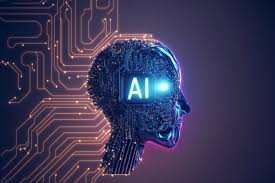Don't Be Scared of AI. Read This Blog: A blog to ease worries around artificial intelligence and to help a person understand its potential
Don't Be Scared of AI: Embrace Its Potential
Introduction
Artificial Intelligence (AI) often evokes images of dystopian futures, where machines dominate humanity. While such scenarios make for thrilling science fiction, they hardly reflect the reality of AI today. This blog aims to dispel common fears around AI and shed light on its incredible potential to transform our world for the better.
Understanding AI: What It Is and Isn't
AI, in its simplest form, refers to machines designed to mimic human intelligence. These machines can perform tasks such as learning from data, recognizing patterns, and making decisions. It's important to understand that current AI, often called Narrow AI, is specialized. It excels at specific tasks like language translation or playing chess but lacks the general cognitive abilities of humans.
Common Fears About AI
Job Displacement: One of the biggest concerns is that AI will take over jobs, leaving many unemployed. While it's true that AI will change the job landscape, it will also create new opportunities. History shows that technological advancements often lead to the creation of new industries and job roles that we can't yet imagine.
Loss of Control: Movies often portray AI as entities that can outsmart and overthrow their creators. In reality, AI systems are tools created and controlled by humans. Ensuring ethical development and governance of AI can mitigate risks and harness its benefits.
Privacy Concerns: AI relies on vast amounts of data to function effectively, raising concerns about privacy. It's crucial to implement robust data protection measures and regulations to safeguard personal information while reaping the benefits of AI.
The Positive Impact of AI
Healthcare: AI is revolutionizing healthcare by enabling early disease detection, personalized treatment plans, and efficient management of medical records. AI-powered tools can analyze medical images with high accuracy, assisting doctors in diagnosing conditions quickly.
Education: AI can personalize learning experiences, making education more accessible and effective. Intelligent tutoring systems can adapt to individual learning styles and provide targeted support, helping students overcome challenges and excel.
Environmental Protection: AI can play a pivotal role in addressing climate change and environmental degradation. By analyzing vast datasets, AI can help predict natural disasters, optimize energy usage, and develop sustainable practices.
Daily Life: From smart home devices that enhance convenience to virtual assistants that streamline tasks, AI is increasingly becoming a part of our daily lives. These technologies can save time, increase productivity, and improve overall quality of life.
Embracing AI Responsibly
To fully embrace AI's potential, it's essential to approach it responsibly. This involves:
Ethical AI Development: Ensuring that AI systems are designed and implemented with ethical considerations in mind, addressing biases, and promoting fairness.
Transparency: Making AI processes transparent so that users understand how decisions are made, fostering trust in AI systems.
Education and Awareness: Promoting AI literacy to help people understand and interact with AI technologies confidently and safely.
Conclusion
AI is a powerful tool with the potential to transform our world in profound ways. By addressing common fears and misconceptions, we can pave the way for a future where AI enhances our lives rather than causing anxiety. Embrace AI with an open mind and a responsible approach, and you'll discover a world of possibilities waiting to be explored.





Comments
Post a Comment